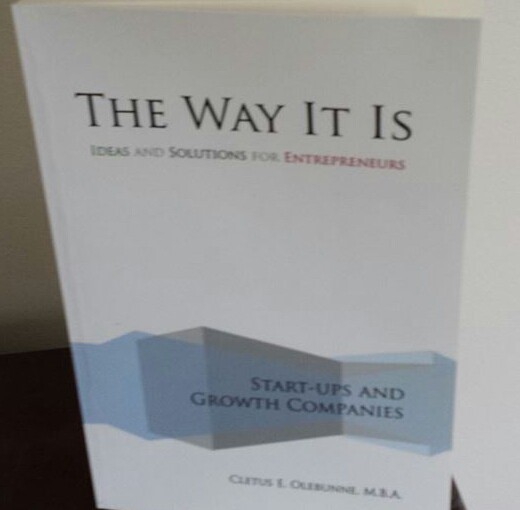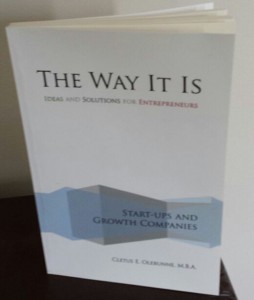![2015-09-24_21.25.52[1]](http://huritt-edu.com/wp-content/uploads/2015/07/2015-09-24_21.25.521-300x188.jpg)
What You Should Know About MBA Programs
Have you ever been curious about receiving an MBA, and wondered if it was the correct step for you to take in order to propel your career within a competitive market? The degree is tremendously popular, and as of 2014, it was the most sought-after post-graduate degree in the U.S., according to figures from the U.S. Department of Education.
Higher education is a huge decision after all, and it’s extremely beneficial to gather all the information you can before making the investment.
Identify your career goals and research degree programs before you apply to business school.
As a prospective MBA, you’ll benefit enormously from taking time at the beginning of your application process to contemplate the path you’re about to take. This is a great time to ask yourself critical questions, as self-evaluation and reflection are crucial to any MBA application journey. Setting aside some time for heavy thinking before you start writing your essays will prepare you for a solid and strategic application.
How can someone tell when it is the right time to apply for an MBA? Is there a certain recommended age, or should it be based on the type or years of work experience you have attained?
There are MBA students who just graduated from college, students with 30 years of work experience, and students with every level of experience in between. Keep in mind that business schools offer the MBA program in a variety of formats (Full-time, Part-time, Executive) to meet the needs of professionals at all stages of their career.
Only you can know if it’s the right time for you to pursue the MBA. Some questions to consider. Do you have a clear sense of the academic, professional and personal goals you hope to achieve in the MBA program? Is the timing ideal for you from both a career and personal standpoint?
What are your career goals?
As you contemplate applying to MBA programs, the very first step in your self-evaluation process is to consider where you want to be in your career. Ask yourself what you would do if you didn’t need to work for money and what your core values are.
If your career goals are not immediately revealed, ask your friends and family what they see you doing. This process should reveal good ideas and a spark of passion for your career path.
If you are in a field where MBAs are not traditionally required, you may still benefit if your career goals include rising to senior management within your company or starting your own company. As a first step, look around at the people you most admire and want to be like within your target company or industry. Read their bios to see their skill set and educational background.
Talking to people who are pursuing your target career, at any level, is also a great way to understand what you need to do to accomplish your goals.
Why do you want an MBA?
While an MBA is a great experience, ultimately it’s a tool to advance your professional aims. The degree is highly focused on practical business applications, not intellectual curiosity.
Preferably when you answer the question of your career goals it will be clear why an MBA is the right degree for you. If your career path doesn’t immediately reveal the need for an MBA, yet you know you want one, you may want to delve into your motivations.
Consider your expectations for the degree and critically evaluate whether your hopes match the reality of an MBA program. If you know current MBA students or alumni, sounding them out first is a great way to start your research and make sure you are committed to the MBA application process.
Is an MBA the right degree for you?
Evaluating your professional goals might reveal that a different type of graduate degree would be useful. Those interested in finance might also consider a master’s in finance, which typically prepares students more specifically for a career in corporate finance, financial analysis or investment management. That degree may prepare you to be the chief financial officer of a company, but may not be the ideal degree for a general manager or CEO. If you’re interested in public policy work or managing in the nonprofit sector, you might look into a law degree, a master’s in public policy or master’s in public administration. On top of those options, you could pursue a joint J.D./MBA or a joint M.P.P./MBA or M.P.A./MBA. While any one of these degrees can help you achieve your goals, you may want to consider the environment of each school, the academic focus, the time you will spend pursuing the degree and what works best for you personally.
Are you competitive in the MBA applicant pool?
As you think about entering an MBA program, you should be aware of the competitive pool of candidates who apply every year. Evaluate yourself against successful candidates to the schools you are considering. The easiest first step is to see what the mean GMAT and GPA is for a successful applicant to your target programs.
If your “numbers” are much lower than the mean at your dream schools, you may want to consider taking classes to build an alternative transcript or retaking the GMAT. While no candidate is perfect, minimizing any red flags in your application will ensure that you have a strong chance at admission.
In today’s competitive market, what are the overall benefits of receiving an MBA and making the financial investment?
Gain knowledge, build your network, and open doors to new opportunities. These are three key benefits of earning your MBA.
We live in a constantly evolving world. Companies are changing the way they do things. New industries and types of companies are emerging. Having an MBA will ensure you are prepared to flourish in this environment. An MBA gives you a broad base of business knowledge, the confidence and the network to embark on any kind of opportunity, whether it’s at your current organization, a new one or in your own business.
HGBSE Support Service:
Such was the impetus for Huritt Global Business School for Entrepreneurship (HGBSE), founded on the mission of providing quality education by partnering with U.S. colleges and universities for the Nigerian marketplace. The HGBSE founder was educated in the United States, as well as started companies in the U.S. HGBSE support service aims to provide support to prospective international students who hope to attain any level of education in the United States. Contact HGBSE for more information. www.hurittglobal-edu.com







![2015-09-24_21.25.52[1]](http://huritt-edu.com/wp-content/uploads/2015/07/2015-09-24_21.25.521-300x188.jpg)